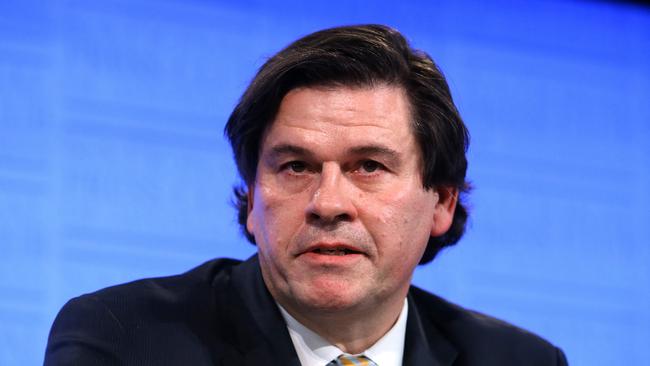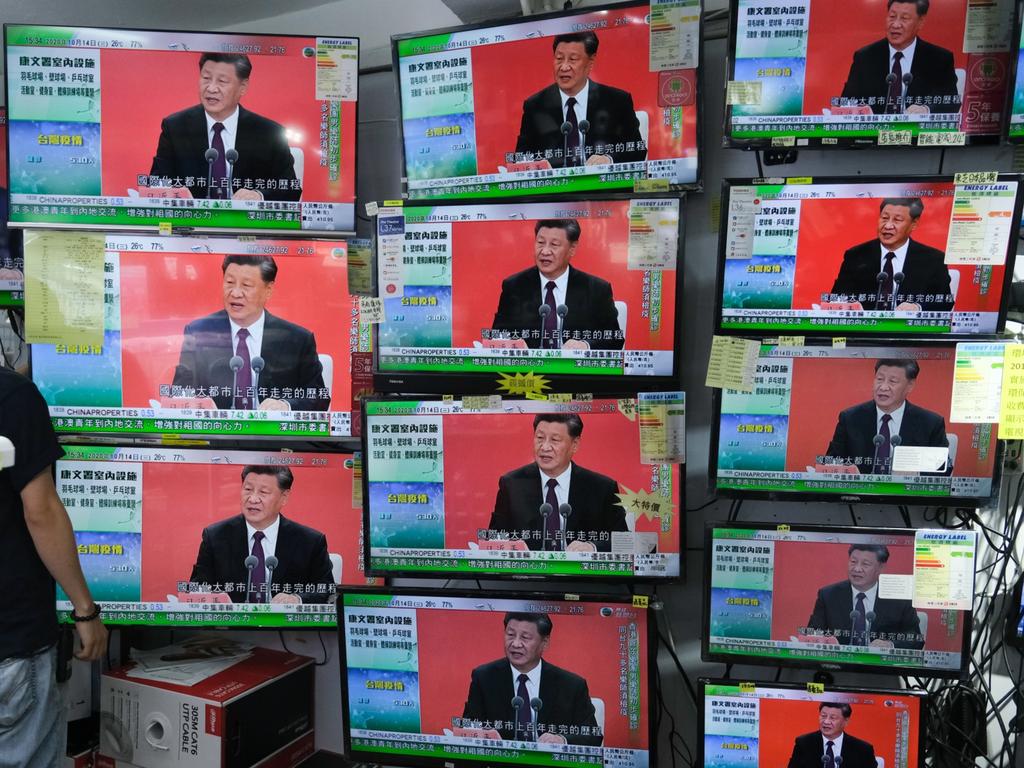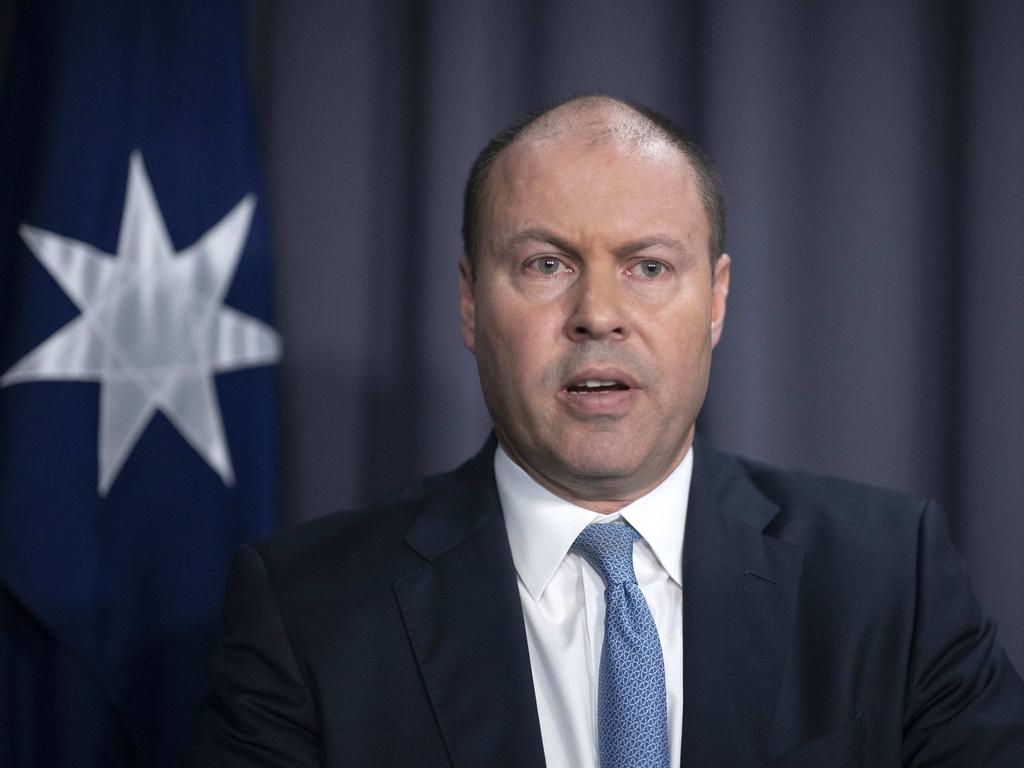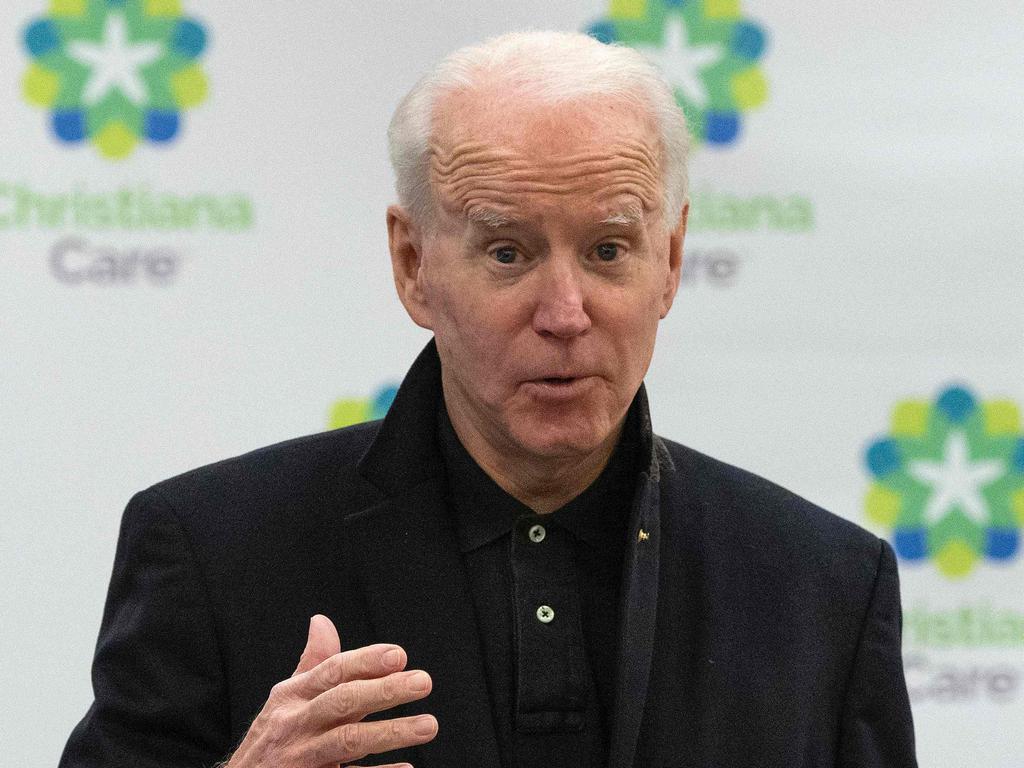Australian Industry Group chief Innes Willox says business cannot let China bully them in 2021
Business leader urges companies to resist bullying from China and for diplomats to help find alternative export markets.

A leader of a powerful business group has called for a better alignment of the nation’s economic and strategic interests, urging Australian companies to resist bullying from China and for diplomats to get “their hands dirty’’ by helping to find alternative export markets.
Australian Industry Group chief executive Innes Willox’s call to drive export diversification and maintain Australian values received support from senior members of the security community.
Writing in The Australian on Monday, Mr Willox said diplomats and business must unite to overcome trade obstacles.
“Better alignment of our economic and strategic interests has never been so crucial. Let’s pull every lever to overcome the obstacles that China has chosen to put in our way,” Mr Willox writes.
His comments come amid renewed trade tensions. Last week, it emerged that a bid by a Chinese state-owned enterprise to buy an Australian-based builder, Probuild, was rejected on national interest grounds, sparking an angry rebuke from the Chinese embassy in Canberra. More than $1bn of coal from Australia is also being refused entry to Chinese ports.
Business leaders have been largely pushing for Scott Morrison to repair relations with Beijing. These have cooled over Australia’s push for an independent investigation into the origins of coronavirus, the government’s anti-foreign interference crackdown and condemnation of China’s crackdown on pro-democracy activists in Hong Kong.
National Farmers Federation president Fiona Simson said while farmers — the worst hit by China’s trade actions — wanted to diversify their markets, the government still needed to do what it could to repair relations with Beijing’s leadership. She said on Sunday that the Morrison government needed to both help farmers with new export markets and repair ties with China.
“Farmers want the government to continue to work hard to repair, maintain and build the China-Australia relationship,” she said. “Australian agriculture will always be an export-oriented industry and diversification remains a key part of the export strategy.
“Farmers want to partner with government to look for opportunities to develop long-standing markets like South Korea and Japan, and new, growing markets like Indonesia and India.”
Mr Willox said it was time to “better align” Australia’s economic and strategic interests, which have long been divided between China and the US. “We will miss their students, tourists and the market they provide,’’ Mr Willox said of China.
“We won’t miss the abuse, our lobsters being left to die at their airports, our coal being left at ports for months at a time, their petty bureaucracy, their authoritarianism and their determination to punish,” he writes.
“We are being harassed and bullied to tease out who stands on whose side in the fight for post-pandemic economic and strategic dominance. Let’s keep talking and trading where we can. One day we will need each other again diplomatically and strategically.
“In the meantime, we should look to other markets and opportunities. ASEAN, India, the Middle East, Latin America, the Pacific, a refocused Britain and Europe. And in time, we all hope, China once again.’’
Top foreign policy analysts said businesses needed to face the reality that Australia-China’s economic relationship would never return to a pre-pandemic state.
Australian coal, barley, beef, lobster, wine, tourism and education are among exports China has targeted in the past year with tariffs, bans and months-long delays at Chinese ports. Despite this, Australia exported $148bn of goods to China in 2020, according to data released on Thursday by Beijing’s Customs agency.
Industry is hoping exporters will be prioritised for vaccinations, with a business blueprint written by the Australian Chamber of Commerce and Industry saying it was necessary to allow Australian businesses to travel overseas and boost commercial links outside of China.
Foreign policy experts said Mr Innox’s comments on China would help bring businesses and the government closer together on a nationwide approach to dealing with the Chinese Communist Party.
ANU’s National Security College head Rory Medcalf said businesses had to grapple with the fact that Beijing was willing to put its security strategy ahead of economic ties.
“China has benefited from the notion of a widening rift between business and the national security community. But now some prominent business figures are recognising that sustainable commercial relations require trust, not mere transaction,” he said.
“We’re likely to see the perception gap between business and government continue to narrow this year, as companies grapple with the reality that Beijing has no qualms about sacrificing their interests and rational economic ties to its geopolitical powerplay.
“To emerge strong from the struggle, Australia needs a national interest strategy, underpinned by the kind of meeting of minds between government and business Mr Willox advocates.”
Australian Strategic Policy Institute executive director Peter Jennings said business has been “wilfully blind” to China’s abuses in the past year.
“It’s with some relief that a respected business leader is giving this advice. I’m not surprised it is Mr Willox with his experience with foreign affairs,” he said. “The business community has been wilfully blind in regards to Beijing and now may understand what is happening in China.
”Our business community has never paused to think about our over-dependence. This mismatch between our economic and strategic interests regarding China was not forced upon us by Beijing — we created it ourselves.”
Mr Willox, who was chief of staff to former foreign minister Alexander Downer, said Australia had stayed “strong and true to our core beliefs’’ during Mr Downer’s time when there was a major falling out over Taiwan. The relationship was brought back on track, establishing a human rights dialogue and eventually a free-trade agreement. He said foreign policy-markers needed to step up to aid Australia’s commercial interests.
“There are countless examples of ambassadors and others declining to help our companies large and small to make connections or conclude deals which would drive growth and jobs for Australians,” he writes. “The impression has been that commercial diplomacy is seen as a grubby venture beneath some in our diplomatic corps — a little bit like getting their hands dirty.
“Industry will need all the help it can (get) to expand and diversify to new markets. That pivot will not be easy. All the trade promotion in the world will be largely wasted if industry and government don’t work together.”







